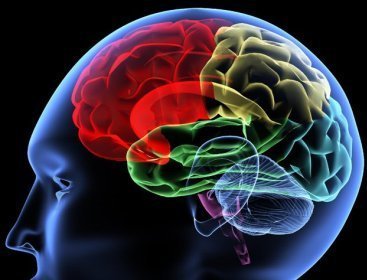
U.S. researchers have discovered that depression shrinks the brain by stopping nerve connections from forming, thus causing memory and concentration problems.
Researchers analyzed brain tissue of patients who died after having memory and concentration disorders, and found inactivity in their synapses. Synapses are genes that are necessary for the function and structure of brain nerve connections.
The loss of brain connections happened due to a particular protein called GATA1, which acts like a “switch.” When switched on, there was a loss of brain connections, which is thought to cause the front of the brain to shrink.
Yale University professor Ronald Duman said, “We show that circuits normally involved in emotion, as well as cognition, are disrupted when this single transcription factor -- GATA1 -- is activated.”
He also added that they predicted that enhancing synaptic connections with medication or behavioral therapy to be effective to fight the condition.
(From news reports)
<관련 한글 기사>
'우울하면 뇌가 쪼그라든다'
미국 연구자들은 우울증이 신경과 신경 사이의 연결 부위가 생성되는 것을 막음으로써, 기억력과 집중력에 문제를 일으키고 뇌를 수축시킨다는 사실을 발견했다.
연구자들은 기억력, 집중력 장애 판정을 받은 후 사망한 환자들의 뇌조직을 검사하여, 시냅시스의 활동이 없었음을 알아냈다. 시냅시스는 뇌 신경을 연결해주는 역할을 하는 유전자의 종류이다.
이렇게 시냅시스를 비활성화 시켜 뇌 신경 사이의 연결고리를 끊은 것은 GATA1이라고 불리는 단백질이었다. 이 단백질은 마치 "스위치"처럼 작동하여, GATA1이 활동하면 뇌 신경의 연결이 끊기고, 뒤이어 뇌의 앞부분이 수축하게 만든다.
예일 대학교의 로날드 듀만 교수는 "이 GATA1이 활성화되면 뇌에서 감정, 인지와 관련된 부분에 지장이 생겼다"고 말했다.
또 그는 의학적 치료나 행동요법으로 스냅시스의 연결을 강화한다면, 우울증을 치료하는 데에 도움이 될 것이라고 덧붙였다.
-
Articles by Korea Herald




![[Graphic News] Beer the most favored alcoholic drink by Koreans](http://res.heraldm.com/phpwas/restmb_idxmake.php?idx=644&simg=/content/image/2024/05/09/20240509050765_0.gif&u=)









![[Weekender] Pet food makers bet big on ‘recession-free’ pet food market](http://res.heraldm.com/phpwas/restmb_idxmake.php?idx=652&simg=/content/image/2024/05/10/20240510050754_0.jpg&u=20240511163252)




![[What to play] Musical tributes to family in the month of family](http://res.heraldm.com/phpwas/restmb_idxmake.php?idx=642&simg=/content/image/2024/05/09/20240509050795_0.jpg&u=)